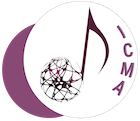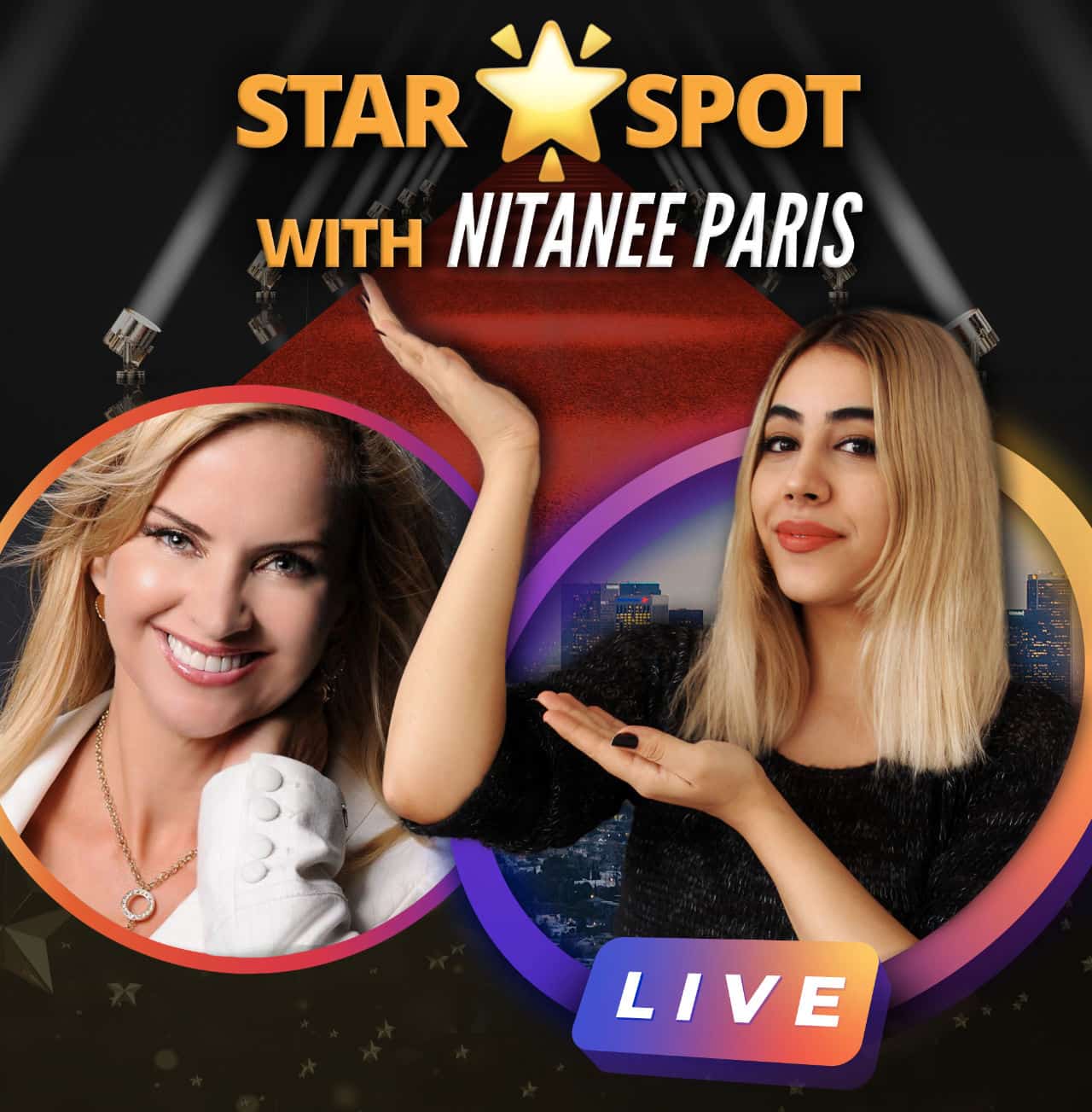Star Spot with Nitanee Paris, Award-winning Songwriter, Director of A&R at ArtistMax
Songwriting, Success, and the Importance of Connection: A Conversation with Nitanee Paris on Finding Your Voice and Building a Network in the Music World
Welcome to this episode of Star Spot! I’m Merry, and in this series, I interview InterContinental Music Awards winners and insiders, bringing you exclusive insights into the music industry. Today, I’m thrilled to have with me InterContinental Music Awards member of the judging panel Nitanee Paris. She is the director of A&R at ArtistMax, a Los Angeles based artist development and education enterprise. With an impressive track record in the music industry, Nitanee is an award-winning songwriter whose work has been featured in TV, films, and commercials. Her credits include The CW, NETFLIX, MTV, VH1, BRAVO, and the HALLMARK CHANNEL. Her work also has been signed with multiple publishers, libraries, and licensing agencies.
In addition to her impressive achievements, Nitanee is also a leader in the music community. She leads the Malibu Chapter of the Nashville Songwriters Association International (NSAI) and hosts songwriting workshops, industry panels, and music events. Nitanee is on the advisory council of the Hawaii Songwriting Festival, the staff of the Durango Songwriters Expo, and the SongArts Committee for the Society of Composers and Lyricists.
Let’s dive right into the interview summary and tap into Nitanee Paris vast knowledge and experience. The full interview is available on Instagram – click here to check it out.
Can you give us a brief introduction about yourself and your work in the music industry?
Sure, my name is Nitanee Paris and I am a songwriter who writes for film, TV, and advertising. I also work with artists and run an artist development company called ArtistMax, founded by Grammy award-winning producer Ken Caillat. He produced Fleetwood Mac’s “Rumours,” “Tusk,” and “Mirage,” as well as his daughter Colbie Caillat. We’ve been working together for about six years now, and we provide artist development and production services, including recording at our studios in Westlake Village and the historic Record Plant in Sausalito. Our indie label is also part of our operation. We have plans to renovate the studio and have part of our operation there as well.
Can you tell us more about ArtistMax and what it offers to artists?
At ArtistMax, we find talented artists through showcases, events, and weekend workshops hosted by world-class mentors in vocal coaching, songwriting, production techniques, microphone techniques, choreography, and more. Our goal is to help artists become better performers and get noticed by major labels. We also have our own studio where we provide education and mentoring to a small number of artists that we sign as an indie label. We pair them up with successful songwriters to build their songwriting skills and produce and release their music.
How has the music industry changed over the past few years in your opinion?
The music industry is constantly evolving. In my world, there has been a significant shift towards creating music for media, such as TV, film, and advertising. We call it sync or synchronization. There has been a lot of focus on writing music for sync in recent years. Additionally, music is primarily consumed through streaming now, which is a significant shift from other formats used previously. The ways in which we get paid for our music have also changed, and we need to adapt to these changes.
Can you tell us about your songwriting classes and workshops?
Yes, I am involved in a couple of different organizations that focus on helping songwriters get their music heard and mentoring them. I am on the Song Arts Committee for the Society of Composers and Lyricists. And we hold various events every year to support songwriters. I also have a chapter of the Nashville Song Association in Malibu, where we host monthly workshops for songwriters to play their songs and receive feedback. Additionally, I am on the board of directors for the Hawaii Songwriting Festival, which aims to connect Hawaiian artists with mainland artists and help them build their skills. I also host songwriting retreats, which have been a rewarding experience for me.
Have you ever come across a unique artist during one of your workshops, and what do you do when that happens?
Yes, I have come across unique artists during my workshops, and when I find someone I love working with, I listen to their music, get to know them, introduce them to my team and my business. One artist I fell in love with was visiting from Russia for a songwriting camp. I invited her to my studio to meet my partner, and we ended up signing her and working together for almost three years now. Our process involves looking for ways to help them, whether it’s getting them in sessions, connecting them with other songwriters, or starting to record in the studio.
How did you overcome the intimidation of working with talented people and improve your collaboration skills?
In the beginning, it was a little intimidating to work with people who had such impressive credentials, but I’ve had the extreme pleasure of working with some really talented people. It took me a long time to get comfortable being openly creative in situations like that. To overcome the intimidation, I set goals to write at least one song every single day and collaborated with many different people to learn different writing techniques and personalities to navigate the collaboration process.
I also wrote an article about the obstacles and blocks to creativity that can arise in collaboration sessions. Not just for songwriting but for any kind of artistic collaboration. Currently, I’m working with Andre Merritt, a Grammy award-winning artist signed with Universal, who has written hit songs for Rihanna. Although we have completely different writing styles, we have been able to collaborate on several songs, and it has been an amazing experience.
Can you tell us about music licensing and its importance in navigating a music career?
Music licensing is an extremely important aspect of navigating a music career, and something that I have been deeply involved in for the past couple of years. It involves writing music for sync, which is for film, television, ads, and other media projects. Many artists have the misconception that in order to write music for sync, they need to water down their music or simplify it, but that’s not entirely true. Writing music for sync can actually open up a different kind of creativity that is beneficial for the artist’s career.
I always encourage artists to think “sync” when writing a song for their project, as it can be used for multiple revenue streams, not just for their own project. It’s just good business, and there are so many benefits to it. For example, sometimes networks will help promote a song release, which can only help an artist’s career. Plus, it’s a great way to get paid for the music, which can be challenging if you’re an indie artist just releasing music. Overall, I believe that writing music for licensing is one of the best things a songwriter can do today.
What is your proudest accomplishment as an artist?
Honestly, the time that I feel most proud is when I write a lyric that I’m proud of and that it gets me excited. However, one of my proudest moments was when I received my first placement in a film project. I was new to songwriting, and I had pitched some of my music to a music supervisor at a conference. About a year later, I received a call that they wanted to use two of my songs licensed for a film. It was a validating moment for me, and I felt like I was finally in the game. Since then, I have had songs featured in many films and TV shows. That moment was a small but powerful one that gave me the encouragement to keep going.
How has it been collaborating with InterContinental Music Awards?
I’m very excited about collaborating with ICMA. As a new member this year, I am thrilled to be part of an international organization that brings people together from all around the world to celebrate music. I previously worked with the Global Peace Song Awards, which is no longer active. One thing I love about ICMA is the cultural understanding that comes with having an international organization like this. I am proud to be one of the judges and am listening carefully to the songs and enjoying the whole process. Being on the judging panel is an incredible honor, and I am excited to be a part of it.
Do you think writing your own music as a singer-songwriter makes you a better artist?
I don’t necessarily think it makes you a better artist, but it does make it more interesting. As a songwriter, I believe it’s crucial to be able to write your own songs. While it’s great to have people using songs from other songwriters, there’s a special passion and emotion that comes through when you’re singing your own songs. Even if you’re not the best singer.
In Nashville, for example, some songwriters sing their songs even though they’re not performers. And you can still feel the beauty of the song. So, to answer the question, writing your own songs can only help, but it’s important to remain open to collaborating with others. The ones who have more experience. It doesn’t take away from your writing credit or skill. Bringing in collaborators can only benefit you.
Any last words you would like to share with our viewers?
For anyone in the music business, I know it can be tough at times, and there’s pressure to find more immediately lucrative endeavors. My advice is to stay focused on what you love, be patient, and give yourself time and space. Don’t give up and stay connected. Collaborate with groups like the Intercontinental Music Awards and build that network. Even if you don’t win, the feedback and community you build can go a long way.
Nitanee Paris’ Contact Info:
- Website: https://nitaneeparis.com/
- Facebook: https://www.facebook.com/nitaneeparis
- Instagram: https://www.instagram.com/nitaneeparis/
Click here to watch the full interview on Instagram

InterContinental Music Awards Team

